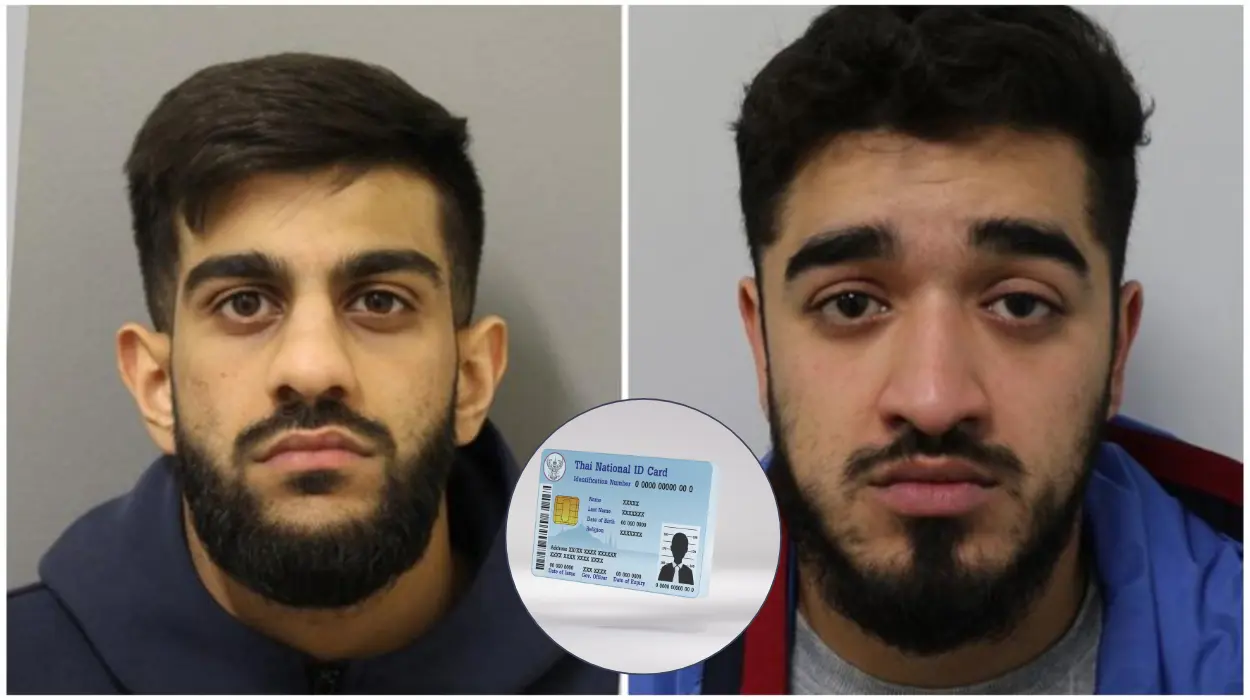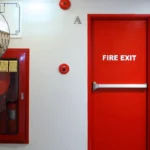Key Points:
- Two men from East London, Bilal Iqbal and Ummad Ahmed, jailed for supplying over 40,000 fake IDs.
- The pair made over £1 million from the criminal enterprise over eight years.
- Sentenced to six years at Snaresbrook Crown Court on 22 May 2025.
- They will serve half of the sentence on licence.
- Fake documents were nearly identical to official DVLA-issued IDs.
- Arrested hours before boarding a flight to Dubai in January 2025.
- National Crime Agency (NCA) linked their documents to drug trafficker Eddie Burton.
- IDs were sold for £70, with extras like holographic stickers.
- Seized items included printers, laminators, blank cards, cash, and over 40 fake licences.
- IDs helped criminals evade law enforcement and supported illegal immigration.
- NCA stresses targeting such enablers is critical to fighting organised crime.
- Original report by Poppy Huggett of Romford Recorder.
Two East London men who made over £1 million by producing and distributing more than 40,000 fake identity documents have been jailed, as reported by Poppy Huggett of Romford Recorder.
- Key Points:
- Who were the individuals behind the fake ID operation?
- How did law enforcement uncover the fake ID scheme?
- How sophisticated were the fake identity documents?
- What wider impact do fake IDs have on UK crime?
- Why does the NCA focus on enablers like Iqbal and Ahmed?
- What items were recovered by police during the operation?
- What are the broader challenges in tackling fake ID crime?
Bilal Iqbal, 25, from Ilford, and Ummad Ahmed, 32, from Hornchurch, were each sentenced to six years in prison at Snaresbrook Crown Court on 22 May 2025. Both men will serve half of their sentence on licence, following a comprehensive investigation by the National Crime Agency (NCA).
Who were the individuals behind the fake ID operation?
According to Romford Recorder journalist Poppy Huggett, Bilal Iqbal and Ummad Ahmed were the masterminds behind a criminal enterprise that manufactured tens of thousands of fake driving licences and identity cards. These forged documents were sold over an eight-year period, with prices starting at £70 and increasing depending on add-ons like holographic stickers or raised text.
The two men operated a for-profit forgery business that, as per the NCA, served as a key enabler for criminals looking to conceal their identities.
How did law enforcement uncover the fake ID scheme?
The NCA’s investigation into the pair stemmed from a wider operation targeting international drug trafficker Eddie Burton. Burton used a fake driving licence—supplied by Iqbal and Ahmed—to travel across Europe while importing over 300 kilograms of Class A drugs into the UK.
The investigation culminated in their arrest on 21 January 2025, just hours before they were due to board a flight to Dubai. Iqbal was found carrying envelopes containing 19 fake UK driving licences, and 21 more were discovered in his car and home in Ilford.
At Ahmed’s home in Hornchurch, authorities seized an ID card printer, laminator, blank plastic cards, holographic foil, and over £20,000 in cash.
How sophisticated were the fake identity documents?
As detailed in Romford Recorder by senior reporter Poppy Huggett, the fake IDs were extremely convincing and closely resembled those issued by the DVLA. The NCA noted that the documents could only be detected as fakes upon close inspection by a trained professional. This level of sophistication made them highly desirable for individuals engaged in organised crime.
John Turner, the NCA’s senior investigating officer, said:
“These men ran an extremely lucrative illegal enterprise and operated as professional enablers at the heart of serious and organised crime.
These IDs helped high-profile criminals evade law enforcement and operate anonymously.
They could also be used by offenders involved in organised immigration crime to provide people smuggled into the country with false UK identities.”
What wider impact do fake IDs have on UK crime?
The case highlights broader concerns in the UK regarding the use of fake IDs across various criminal networks. According to the National Crime Agency and supported by data from TrustID, fake IDs are often used in identity theft, benefit fraud, illegal employment, and organised immigration crime.
In 2020 alone, fake ID detection in the UK increased by 9%, with 52 nationalities represented among seized documents. Sectors such as construction, housing, hospitality, and medical care have been primary targets. These documents are frequently produced using high-end printing equipment and traded via online platforms using cryptocurrencies.
Why does the NCA focus on enablers like Iqbal and Ahmed?
The NCA considers individuals like Iqbal and Ahmed to be critical components of the broader machinery of organised crime. By supplying criminals with false identities, they enable activities ranging from drug trafficking and money laundering to illegal immigration.
John Turner added:
“Tackling enablers for wider criminality, such as Iqbal and Ahmed, is a key pillar in our mission to protect the public from serious and organised crime.”
What items were recovered by police during the operation?
From Iqbal:
- 19 fake UK driving licences found in his possession at the time of arrest
- 21 additional fake licences discovered in his car and Ilford home
From Ahmed:
- ID card printer
- Laminator
- Blank plastic cards
- Holographic foil
- Over £20,000 in cash
These items confirm the scale and professionalism of the operation.
What are the broader challenges in tackling fake ID crime?
Authorities across the UK face increasing difficulty in dismantling fake ID networks due to advancements in forgery technology and anonymous payment systems. Many fake IDs today can bypass electronic verification systems and are sold in online markets that accept cryptocurrency.
Law enforcement agencies, including the NCA, are working alongside private sector identity verification firms to counteract this growing threat.



